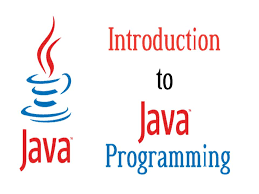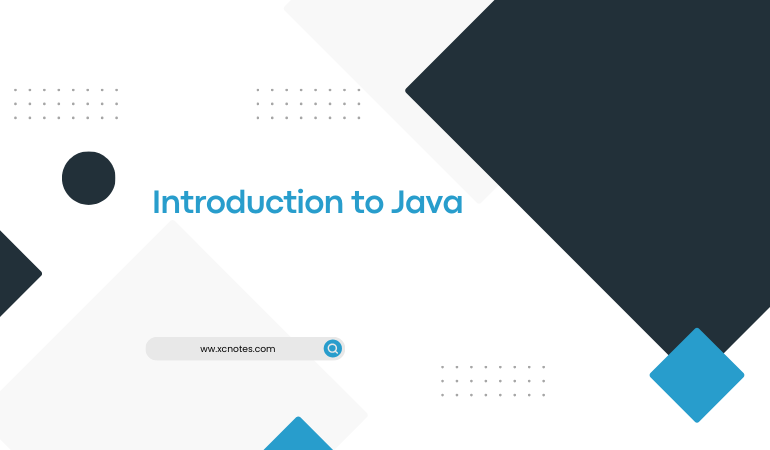Java is a high-level, object-oriented programming language(OOP (the program is divided into classes and objects)) that was developed by Sun Microsystems of USA (now owned by Oracle Corporation) in the mid-1990s. It was designed to be platform-independent, meaning that Java programs can run on any operating system or device that has a Java Virtual Machine (JVM(abstract machine)) installed.

The popularity of Java stems from its simplicity, robustness, and versatility. It is widely used for developing a wide range of applications, from small desktop programs to large enterprise-level systems. Java’s object-oriented nature allows for modular and reusable code, making it suitable for building complex software architectures.
One of the key features of Java is its “Write Once, Run Anywhere” principle(WORA). Java programs are compiled into bytecode, which can be executed on any device with a compatible JVM. This portability has made Java a popular choice for developing cross-platform applications. JVM plays the intermediate role in this concept
Java offers a rich set of libraries and frameworks that simplify common programming tasks. The Java Standard Library provides classes and methods for tasks such as input/output, networking, and concurrency. Additionally, Java has a vast ecosystem of third-party libraries and frameworks that further extend its capabilities and allow developers to build applications more efficiently.
Java’s syntax is similar to that of other C-style languages, such as C++ and C#. It emphasizes readability and simplicity, with a strong focus on structured programming and code organization. Java also supports multithreading, allowing developers to write concurrent programs that can use modern multicore processors.
In recent years, Java has evolved to adapt to the changing landscape of software development. It introduced new features and enhancements in versions like Java 8, Java 11, and Java 17, including lambda expressions, the Stream API, modularization with the Java Platform Module System (JPMS), and improvements to the garbage collection mechanism.
Java is not only used for standalone applications but also plays a significant role in web development. It powers many server-side applications through frameworks like Spring and JavaServer Faces (JSF), and it is widely used for developing Android applications using the Android Software Development Kit (SDK).
. It can be used to create two types of programming first is Standalone and the second is Web Application programming (Client-server concept) which can be used over a network. The general purpose application is known as a standalone application and the applications for internet or web-based applications like Applet, Frame, etc
The small team of Sun engineers initiated Java language. In 1995, OAK was renamed “JAVA”
In conclusion, Java is a versatile, platform-independent programming language that has a wide range of applications. Its simplicity, robustness, and portability make it a popular choice among developers for building various types of software.
JAVA VERSIONS
1. OAK (1991) ->For embedded devices
- JDK 1.0 (Jan. 21, 1996) ->original version
- JDK 1.1 (Feb. 19, 1997) ->Event handling and inner classes
- J2SE 1.2 (Dec. 8, 1998) ->add “Swing”
- J2SE 1.3 (May 8, 2000) ->add Packages
- J2SE 1.4 (Feb. 6, 2002) ->more additions
- J2SE 5.0 (Sept. 30, 2004) ->enumumeration, another new syntax
- Java SE 6 (Dec. 11, 2006) ->Sun replaced the name “J2SE”
- Java SE 7 (July 28, 2011)
- Java SE 8
- Java SE 9
- Java SE10
EDITION OF JAVA:
JAVA ME (Micro edition)
Java ME (Java Platform, Micro Edition) is a version of the Java programming language specifically designed for resource-constrained devices such as mobile phones, embedded systems, and other small devices.
JAVA SE (Standard edition)
Java SE (Java Platform, Standard Edition) is a widely used platform for developing and running Java applications. It provides a runtime environment and a set of libraries and APIs that enable developers to create various types of applications, from desktop software to web applications and enterprise systems.
JAVA EE (Enterprise edition)
Java EE (Java Platform, Enterprise Edition) is a set of specifications and APIs (Application Programming Interfaces) provided by Oracle for developing and deploying enterprise applications in Java. It provides a runtime environment and a collection of APIs that enable developers to build scalable, robust, and secure enterprise applications.

